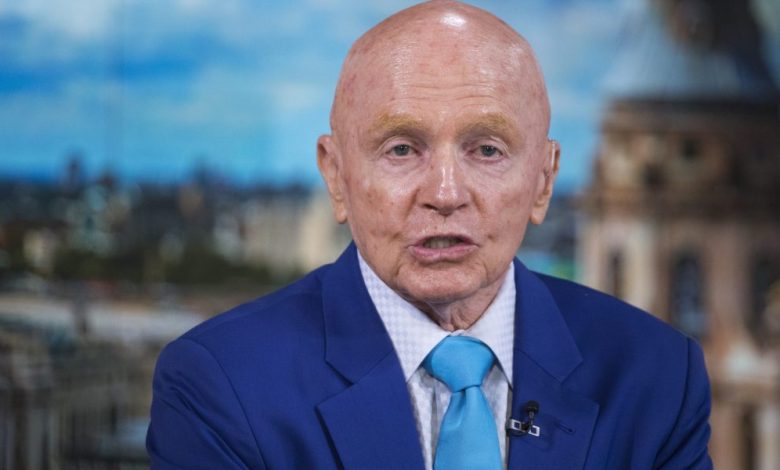Mark Mobius complains that his money is stuck in China

Veteran emerging markets investor Mark Mobius said investors should be “very, very cautious when investing in China” after struggling to get their money out of the country.
Mobius, founder of Mobius Capital Partners, has long been a promoter of Chinese equities but revealed why he changed his mind in an interview with Fox Business on Thursday.
The investor revealed that he had scavenged funds in an account at HSBC in Shanghai. “I can’t get my money out. The government is restricting the flow of money out of the country,” he said.
Möbius went on to say that the Chinese government put “all kinds of obstacles in his way”. “They don’t say, ‘No, you can’t get your money out,’ they say, ‘Give us all the records from 20 years of how you made that money,’ and so on. It’s crazy.”
In China, individuals and companies attempting to move money out of the country must comply with guidelines and restrictions set by regulators such as the State Administration of Foreign Exchange (SAFE), which governs China’s foreign exchange market.
These restrictions differ from more open economies where money can move freely, like the US or Hong Kong, the semi-autonomous Chinese city.
Speaking on Fox Business, Mobius said his team is investing in China through Hong Kong, which Mobius called “a bit more open” than China. The city allows foreign investors to invest in both Chinese stocks and bonds through local financial institutions.
China’s economy
Foreign companies and investors weighed on China’s economy throughout 2022 after an official crackdown on large private sector firms and economic damage caused by a strict COVID-zero policy, leading to billions of dollars in monthly capital outflows as investors bought bonds and shares sold.
But China’s rapid reopening is emboldening analysts to issue more optimistic forecasts for both China’s economy and its stock markets. In late February, Goldman Sachs estimated Chinese stocks could rise as much as 24% by the end of the year as sentiment shifts “from reopening to recovery.”
However, this renewed optimism is far from universal.
On Sunday, China said it is aiming for 5% GDP growth in 2023, less than economists had expected.
And earlier this month, the American Chamber of Commerce in China reported that just 45% of over 300 companies surveyed between October and November 2022 considered China a “top 3” investment destination, up from 60% a year earlier.
Mobius warned Thursday that Chinese officials are trying to tighten control of China’s private companies, including through “golden shares,” or nominal shares bought by government-related companies to gain board representation and veto powers.
“I don’t think it’s a very good picture to see government becoming more and more control-oriented in the economy,” Möbius said.
Mobius indicated that he is now looking at other possible investment targets, particularly India. “They have a billion people, they can do the same as the Chinese. You can do the same kind of crafting and so on,” Möbius said.
Manufacturers are considering moving production outside of China, in part due to concerns about escalating tensions between Beijing and Washington. Before the weekend, Apple supplier Foxconn reportedly agreed to invest $700 million in a new Indian plant in Karnataka.
Learn how to navigate and build trust in your organization with The Trust Factor, a weekly newsletter exploring what leaders need to succeed. Login here.



